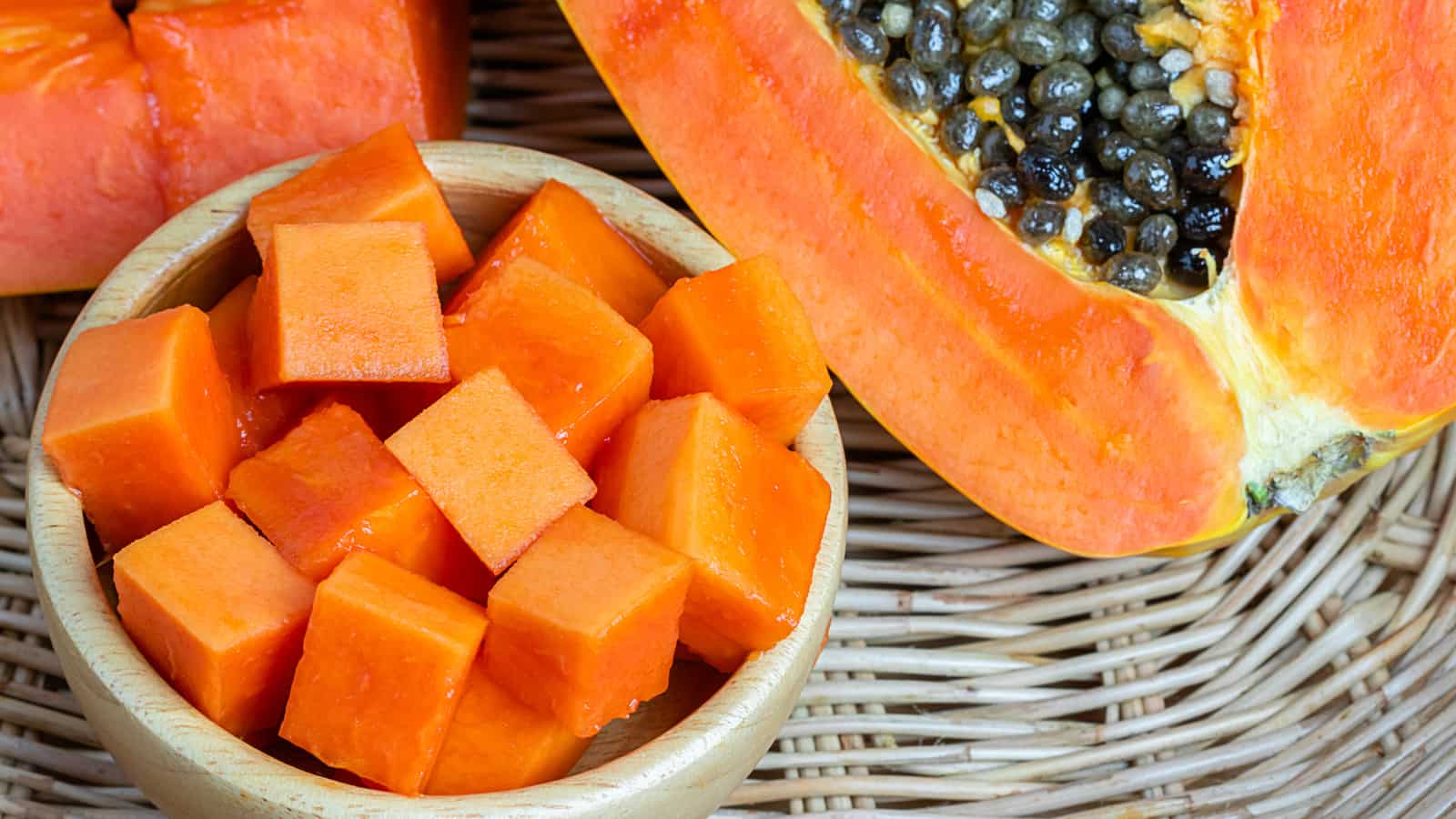Diabetes is a circumstance wherein the frame doesn’t make enough (or any) insulin or doesn’t use insulin in the manner it should. Insulin is a hormone that facilitates glucose, or sugar, inputting the body’s cells. If your frame doesn’t make or use insulin properly, sugar can collect in your blood.
Papaya is a yellowish-orange color fruit with a smooth tropical taste. This species of fruit — which belongs to the Caricaceae family — is spherical and plump and springs in various sizes.
Its flavor relies upon whether or not you’re ingesting ripe or unripe papaya. When ripe, papaya is nice and has a taste similar to a melon. Unripe papaya, on the alternative hand, may also have minimal to no taste.
Nutritional contents of Papaya
One small fresh papaya has about 67 calories. Other nutritional values include:
- 95.6 mg of vitamin C, 106.2 percent of your daily value
- 33 mg of magnesium, 8 percent of your daily value
- 286 milligrams (mg) of potassium, 6.08 percent of your daily value
- 31 mg of calcium, 3.1 percent of your daily value
- 2.67 g of dietary fiber, 10 percent of your daily value
Health Benefits of Papaya
- Prevents cancer- Consumption of the antioxidant beta-carotene found in papayas may reduce the risk of cancer. In younger men, a beta-carotene-rich diet may play a protective role against prostate cancer.
- Improves digestion – This yellow-color fruit contains an enzyme called papain that aids in digestion; In fact, it can be used as a meat tenderizer. Papaya is also high in fiber and water, both of which help prevent constipation and promote regularity and a healthy digestive tract.
- Improves immune system – Papaya is an excellent source of vitamin C and it can help boost the immune system and protect the body from various diseases and infections.
- Helps in lowering blood sugar – In people with type 2 diabetes papaya can help in lowering blood sugar levels. According to studies, papaya has a hypoglycemic effect on the body resulting in lowered blood sugar levels.
- Anti-inflammatory – Papaya may also act as a natural pain reliever due to the enzyme papain. This enzyme increases the body’s production of cytokines, a group of proteins that help regulate inflammation. Papaya can also relieve pain caused by arthritis and related conditions.
- Reduces Risk of Alzheimer’s Disease – According to some studies, it was found that fermented extracts of papaya powder could counteract the results of aerophilous stress in people living with Alzheimer’s disease and slow the progression of the illness, although the potential effects of papaya haven’t been studied for this benefit.
Is Papaya Good For Diabetes?
Papaya is a great choice for people with diabetes due to its medium GI. Papaya stands at 60 on the glycemic index (GI), so the blood sugar levels don’t spike too quickly. Eating papaya also helps in lowering blood sugar. Papaya may have a hypoglycemic effect on blood sugar levels. The fruit contains flavonoids, which are natural antioxidants that can help regulate blood sugar.
However, there is more research needed before any firm conclusions can be drawn about papaya’s effects on blood sugar.









